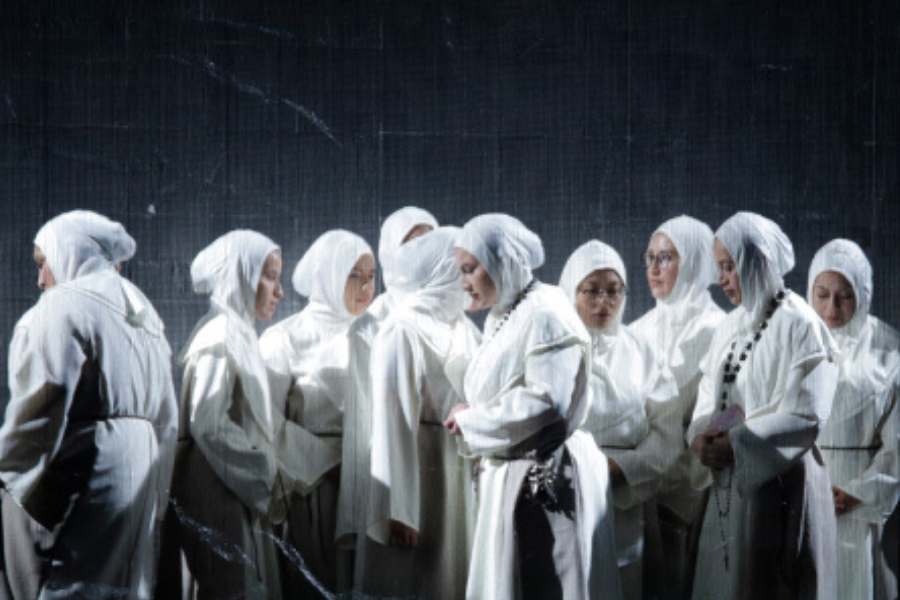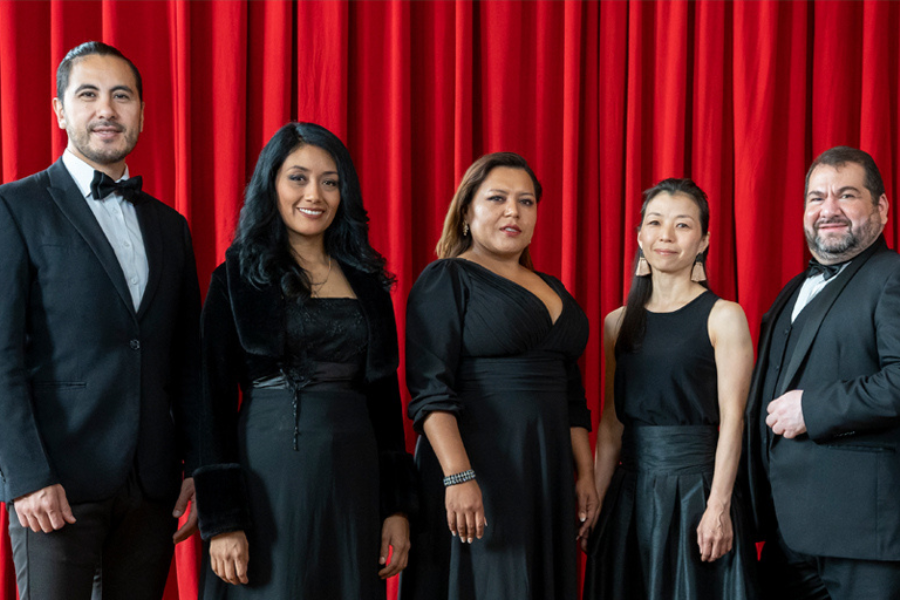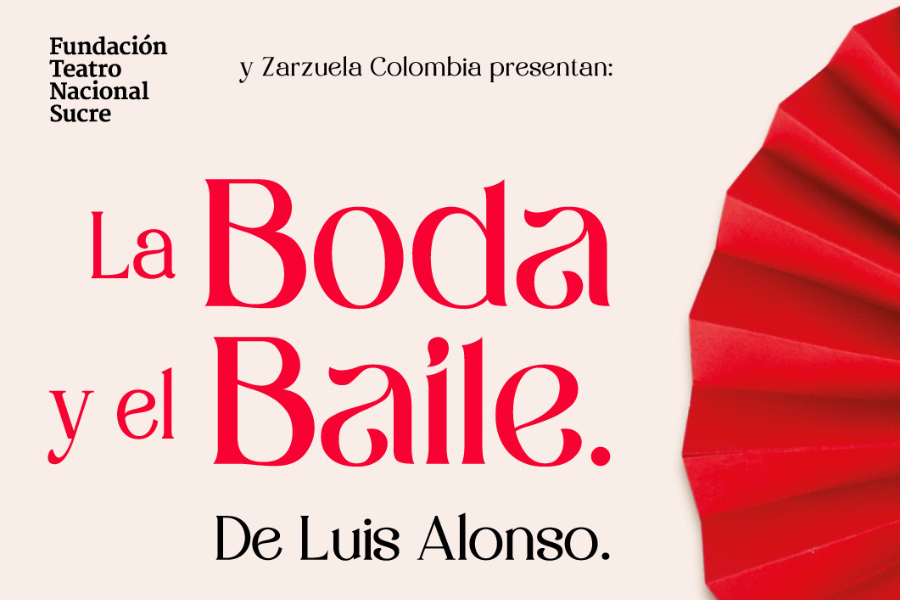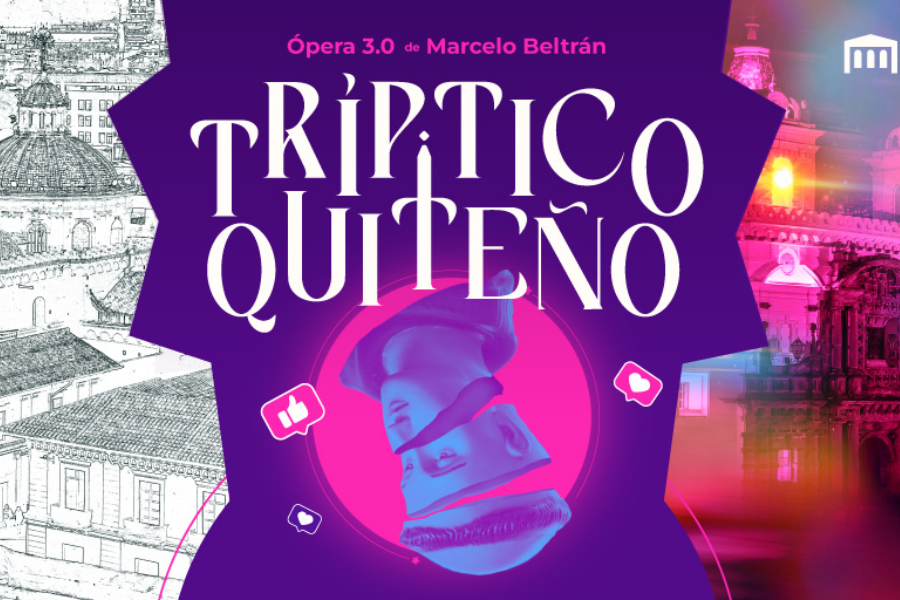Carmen-Helena Téllez: Una fuerza silenciosa en la música

Entre ensayos, la Directora Musical de La Flauta Mágica de los Andes en una entrevista nos revela algunos detalles de la producción más ambiciosa y original de la Fundación Teatro Nacional Sucre, en su estreno mundial este jueves 14 de junio.
.
La directora y erudita venezolana-estadounidense Carmen-Helena Téllez ha sido llamada «una fuerza silenciosa detrás de la música contemporánea en los Estados Unidos hoy en día» por la revista Sequenza21, equilibra actividades como artista creativo, director de orquesta, académico, productor y administrador. En 2012 se une a la famosa Universidad de Notre Dame como profesora de dirección. Anteriormente, fue Directora de Estudios Coral Graduados y Directora del Centro de Música Latinoamericana en la prestigiosa Escuela de Música Jacobs de la Universidad de Indiana, donde también dirigió su Conjunto Vocal Contemporáneo. También es co-directora artística de Aguavá New Music Studio, un grupo de artistas con el que graba y realiza giras internacionales. Ha sido la directora residente de Chicago Contemporary Chamber Players (Contempo), directora de música del Coro Nacional de España y profesora visitante en Dartmouth College, y actualmente está escribiendo libros sobre Latin American Choral y Avant-Garde Genres.
.
Como directora del Centro de Música Latinoamericana, Carmen-Helena Téllez ha encargado, premiado y grabado varias obras, organizado tres Simposios de Música Interamericanos y muchos eventos especiales, creado un concurso de performance, producido una serie de grabaciones, e implementado un conjunto latinoamericano y varios cursos. En el año 2000 se convirtió en la primera mujer en el registro para llevar a cabo la monumental Grande messe des morts de Hector Berlioz con 450 artistas en el escenario. Por su enfoque innovador de la pedagogía a través de la colaboración creativa, Carmen-Helena Tellez recibió el Premio Tracy M. Sonneborn en la Universidad de Indiana en 2010.
.
¿Cómo fue tu vinculación al equipo creativo de La Flauta Mágica de los Andes?
Yo conozco a la maestra Chía Patiño desde hace muchos años. Ella se formó en Indiana University en Bloomington, Estados Unidos, en un periodo en el que yo era profesora de Dirección. Durante ese tiempo establecimos una amistad muy linda. Yo estaba siempre muy impresionada por su talento, por una actitud de avanzada que ella tenía en todas sus propuestas, aún como estudiante. En aquel momento siempre discutimos la posibilidad de hacer una nueva ópera americana adaptada a la sensibilidad de nuestra cultura. Con el correr del tiempo Chía se convirtió en la Directora Artística y Ejecutiva de la Fundación Teatro Nacional Sucre y cuando ella me hizo saber de la posibilidad de hacer La Flauta Mágica de los Andes, inmediatamente le dije que estaría encantada de colaborar.
.
Para quienes no conocen La Flauta Mágica de Mozart ¿Por qué es tan importante esta ópera?
Es importante por muchas razones. Es una obra maestra que se ha sostenido en el repertorio por más de doscientos años. Mozart la hizo en 1791, el mismo año que compuso el Réquiem y de su muerte. Mozart es conocido por ser un compositor de ópera que escribe de una manera muy humana, que refleja las experiencias de cualquier persona de una manera sublime. La Flauta Mágica es muy especial porque tiene varios niveles de entendimiento, posee melodías que tienen un sentido popular, que representa al hombre común, pero a la vez tiene personajes arquetípicos, con ciertos aspectos morales. Trata de hacer una descripción de toda la sociedad a través de distintos estilos musicales de una manera muy entretenida y emocional.
.
¿Qué retos representó el adaptar musicalmente esta ópera clásica al lenguaje de los instrumentos andinos?
Eso fue precisamente lo más atractivo de la propuesta de la maestra Patiño. No es solamente una versión con instrumentos andinos sino que hay un concepto orgánico: hubo una traducción al castellano, pero lo más importante es que todo el concepto de la obra ha sido trasladado a la cosmogonía y los conceptos religiosos de nuestras filosofías andinas. La reorquestación fue una adaptación realizada en primer lugar por el Maestro Segundo Cóndor, que era el Director Artístico de la Orquesta de Instrumentos Andinos (OIA). Él hizo un trabajo de adaptación y estableció unos lineamientos generales, pero por una enfermedad lamentablemente murió y no pudo terminarla. Cuando yo llegué para hacer una primera lectura de las partituras nos dimos cuenta que él estableció unos criterios, pero no estaba terminada. Entonces realizamos un trabajo cocreativo con Tadashi Maeda, Leonardo Cárdenas y otros colegas que trabajan con la OIA. Tuvimos que traducir el lenguaje de la orquesta europea, que está fundamentada en el sonido de la familia de los violines, al sonido de la orquesta andina. Se preservó todo: la melodía, la armonía, el espíritu de Mozart, pero cambia un poco el vestido de la obra porque usamos nuestros colores. Con ese cambio también cambia la sensibilidad, la emoción, el aroma de la obra.
.
Anteriormente ya has realizado algunos proyectos con la Fundación Teatro Nacional Sucre, ¿Cómo ha sido tu experiencia de trabajo con su equipo?
Esa es una pregunta que me encanta porque hay que decirlo: lo que ustedes tienen aquí en el Teatro Nacional Sucre es algo maravillo. Es raro encontrar un medioambiente donde participan todas las generaciones de artistas, desde los artistas ejecutivos que dirigen el proyecto hasta los jóvenes estudiantes que están en un primer nivel de su carrera. Todo el mundo trabaja con un gran entusiasmo, cariño, una interacción fácil y mucha alegría. Además tienen la posibilidad de desarrollar proyectos interesantes sin frenos. Es realmente una situación bien especial en Latinoamérica. Yo espero que su trabajo se defienda y perdure por décadas.
.
¿Cuál será el aporte de La Flauta Mágica de los Andes a la historia de la ópera?
Toda transcripción tiene el gran mérito de traducir una experiencia, un período de la historia. Una obra que ha estado circunscrita a un ámbito europeo o un ámbito social, lo traduce a otro. Eso demuestra que la obra de Mozart es maestra, porque es capaz de recibir este tipo de traducción y sostenerse con el paso del tiempo. Es una obra maestra, pero a la vez, al hacer esta traducción se atrae también a personas que nunca han estado interesadas en la ópera para que entiendan que esta experiencia es necesaria para todos nosotros porque expresa nuestra humanidad. Yo espero varias sorpresas, por ejemplo en la orquestación nos hemos dado cuenta de que hay algunos instrumentos que cantan mejor que otros, cómo una melodía canta distinto en un instrumento andino que en un instrumento europeo. La melodía adquiere otro nivel emocional, todas esas sorpresas son muy interesantes.
.
Agradecimientos a la Fundación Teatro Nacional Sucre de Quito, Ecuador.





